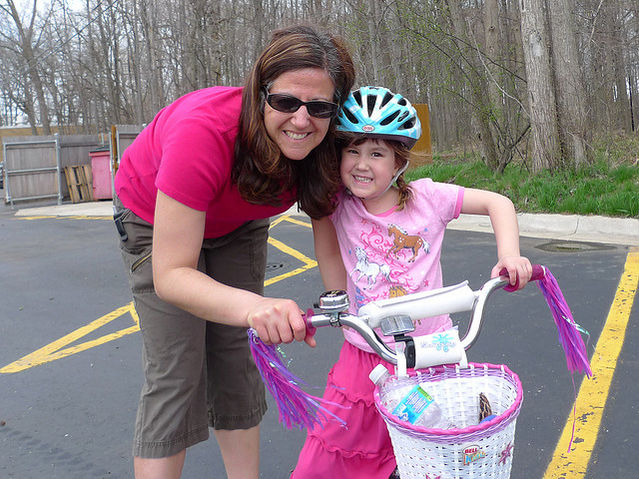Attention
Can You Be Too Supportive of Your Child's Negative Feelings?
New study: Moms’ emotional supportiveness linked to worse adjustment at school.
Posted July 1, 2017

There's plenty of evidence that when parents help preschoolers understand and cope with negative feelings, they teach kids important skills. But a new study suggests that supportive responses to our kids' negative feelings may not always be helpful.
Vanessa Castro and her colleagues (Castro, Halberstadt, & Garrett‐Peters, 2017) had moms rate how they typically respond to their third graders' negative feelings and also rate their social adjustment. They found that moms who reported being more supportive also rated their children as more socially skilled, but teachers said these kids had fewer socioemotional skills and more problem behaviors.
So, how do we understand this surprising finding? Unfortunately, the measure of emotional support used in this study was a mixed bag, including a wide range of parental responses such as distracting, comforting, and problem-solving, so it's hard to know which specific responses were or weren't helpful.
Because this is a correlational study, we can't tell what causes what. Maybe kids who have trouble getting along at school elicit and need more emotional support from parents. Maybe these kids would be even worse off if their moms weren't so supportive!
Future research will help sort out the implications of these findings. In the meantime, it's worth thinking about the possibility that, as parents, we might sometimes overdo emotional support to the detriment of our children's coping and relationships. When we pay attention to our kids mainly when they're upset, we could accidentally teach them that that's the best way to get our attention.
Also, as kids get older, their social lives become more complicated. The strategies we used to comfort our upset toddlers may not be enough to teach school-age children how to manage their emotions in situations when we're not around.
Here are some ideas to consider in your role as your child's "emotion coach":
1) Focus on emotional behavior as well as emotional experience
Too often, people believe the myth of emotional venting, which says that we have to "let out" negative emotions. There's not a shred of empirical evidence to support this perspective! In fact, acting aggressively by, say, punching a pillow and imagining hitting the target of our frustration, can actually intensify anger (Kennedy-Moore & Watson, 2001).
School-age children need to learn what to express, with whom, and how. They need to begin to imagine what kind of response they hope to get from others and what actions are most likely to get that response. (Hint: It's unlikely anyone will respond well to getting yelled at!) They have to learn effective ways to ask for what they want or to tolerate less-than-ideal situations without resorting to tantrums.
2) Consider peer reactions
From about first grade on, other kids tend to react negatively to kids who frequently become very emotional at school. They may feel frightened or uncomfortable around kids who are often intensely upset, or they may just prefer to hang out with kids who are easier to get along with. Unfortunately, some kids are entertained by big emotional displays and may tease or try to provoke these reactions.
School-age children are beginning to be able to imagine someone else's perspective in greater detail and with greater accuracy. They can start to consider what someone else wants, in addition to what they want.
They are also beginning to become aware of social norms, which are unwritten rules describing expected or unexpected behavior in different situations. For instance, if no one else is crying after losing the baseball game, your child should consider the possibility that his reaction is bigger than the situation warrants and might even make teammates feel bad.
3) Avoid overdoing for kids
In general, we don't want to do things for our children that they can do for themselves because that robs them of the opportunity to learn important coping skills. If we overdo in the emotional realm, we may accidentally teach our kids that they can't handle any distress on their own, and they have to get an adult to fix things.
Babies and toddlers have few options--other than crying or yelling--when something isn't right. School-age kids have a wide range of coping options. They can distract themselves, say encouraging things to themselves, think about a problem in a new way, ask for specific help, keep trying, take a short break then try again, or walk away from an unhealthy situation.
In a calm moment, you can help your child think through which options are likely to work best in a particular challenging situation. Don't just give answers; ask questions to guide your child toward coming up with a solution. "What have you tried so far?", "What do you think might help?", "How do you think they're likely to react?" and "How will you know if it's helping?" are possibilities.
In no way does the study by Castro (or this blog post!) imply that parents should be "unsupportive" when their children are upset. Having parents who are frequently harsh or uncaring is devastating for kids. Parents can be an important source of comfort even as children grow into adulthood. We all need people in our lives who are always on our side.
However, if we think of our job as parents as helping our kids learn how to be in a relationship, then it's clear that support alone is not enough. We can and should acknowledge our children's feelings and offer our loving acceptance, understanding, and comfort. However, we also want to help our children learn to manage their emotions, communicate effectively, and care about others. We may be their emotional training wheels, but our goal is to help them become capable of riding confidently even when we're not around.
Related posts:
A Simple Strategy to Help Worried Kids
When Your Child Says, "Nobody Likes Me!"
Pressure to Succeed in Middle School
© Eileen Kennedy-Moore, PhD.
Subscribe to monthly email NEWSLETTER to be notified about new Growing Friendships posts.
This blog post is for educational purposes only. You're welcome to link to it, but please don't copy it without permission from the author.
Photo credit: "Libby and Denise learning to ride a bike" by Andy Eick / CC BY 2.0
References
Castro, V. L., Halberstadt, A. G., & Garrett‐Peters, P. T. Changing tides: Mothers’ supportive emotion socialization relates negatively to third‐grade children's social adjustment in school. Social Development.
Kennedy-Moore, E., & Watson, J. C. (2001). How and when does emotional expression help?. Review of General Psychology, 5(3), 187.




